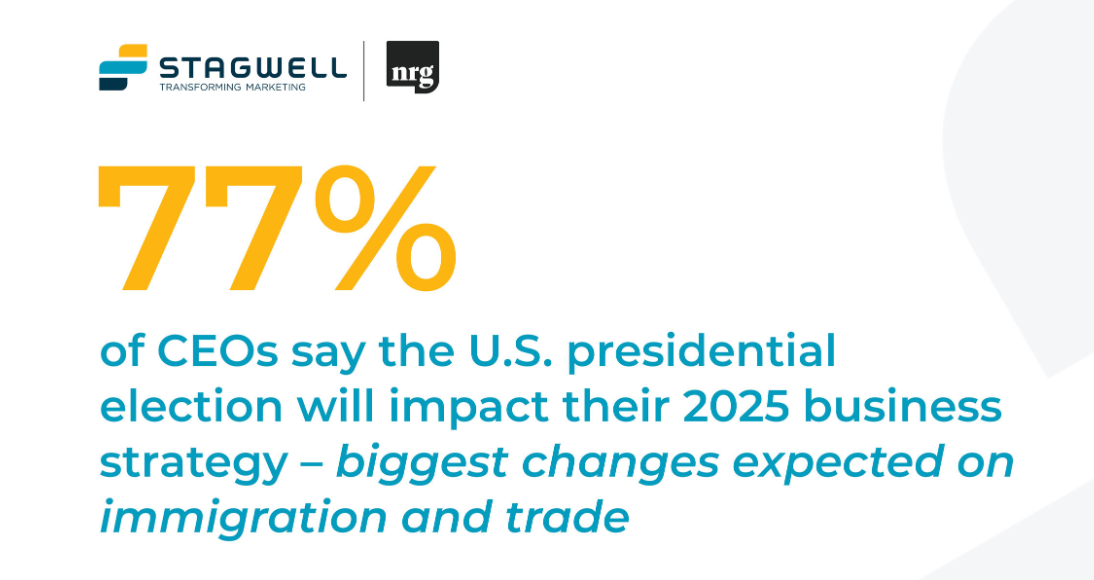Data
WHAT THE DATA SAY: 70% of Americans worry about AI writing this newsletter in the future
By: Ray Day
CONTACT:
We wanted to share our latest consumer and business insights, based on research from Stagwell. Among the highlights of our weekly consumer sentiment tracking (fielded Mar. 24-26):
WORRIES ABOUT ECONOMY DECLINE
Today, 83% of Americans are concerned about the economy and inflation – down 2 points from last week and back near December’s 82% rate.
- 79% worry about a potential U.S. recession (no change)
- 78% about U.S. crime rates (down 3 points)
- 73% about political divisiveness (up 1 point)
- 71% about the War on Ukraine (down 1 point)
- 68% about affording their living expenses (down 2 points)
- 67% about a banking crisis (new)
- 66% about the solvency of U.S. banks (new)
- 59% about the security of deposits in banks (new)
- 55% about a new COVID-19 variant (down 3 points)
- 46% about losing their jobs (down 7 points)
INFLATION STILL TOP CONCERN; BANKING CRISIS IS NOT
While Americans remain concerned about inflation, they’re not worried about the recent banking crisis and are divided on the TikTok debate. That’s according to our latest poll with the Center for American Political Studies at Harvard University.
- 67% agree with the Biden administration’s decision to step in and guarantee all customer deposits from Silicon Valley Bank and other failed banks.
- 77% of voters think the government should fully insure deposits at all U.S. banks, not just systematically important firms.
- 71% think the bank failures will affect them “not at all” or “only a little bit.”
- 67% think the deposits in their own banks are safe.
- Americans care more about inflation than the banking crisis: 54% believe the Federal Reserve should prioritize fighting inflation even if it means allowing banks to fail and could lead to a financial crisis in the short term.
- 75% see China as an enemy of the U.S., and 80% think China seeks to replace the U.S. as the key player in global affairs.
- 55% of voters think Biden’s foreign policy is too weak on China.
- At the same time, 75% are split on how to handle TikTok: 45% support a ban in the U.S., while 46% support allowing the app with conditions, such as forcing it to undergo regular security reviews or forcing its Chinese owners to sell their stakes.
MANY AMERICANS STILL FEEL ‘WEALTHY’
Even as the average American household has seen purchasing power and wealth erode, many are still feeling at least somewhat “wealthy,” according to our poll with Fast Company.
- 68% of Americans define wealth as comfort and necessities, as opposed to extravagance and excess.
- 48% say wealth is the ability to comfortably afford necessities like food and shelter with some money left over.
- 20% indicate that being able to afford necessities alone defines wealth.
- 11% define wealth as being able to afford “extravagant purchases.”
40% WORRY AI WILL TAKE THEIR JOB
Generative AI continues to be the headline of 2023 – including in the work place – with 74% of Americans having used the technology for work-related tasks yet 40% worried that the technology is going to replace them.
- The C-suite debate about ChatGPT is intense, with 56% of workers reporting their companies already have implemented discussions or restrictions about using ChatGPT.
- 38% say that the technology will make them more useful in the workplace.
- 42%, however, believe the new tool will make it harder for them to find a new job – with more than 7 in 10 believing AI will replace roles with a heavy focus on data entry and processing, media and communications, coding and even hiring. Roles expected to be replaced the most: data analysis (77%), data entry and processing (75%), media and communication (74%), content creation (73%), PR (72%), coding (71%), customer service (71%), administrative roles (71%) and hiring (71%).
1 IN 2 CAREGIVERS SUFFERING MENTALLY, FINANCIALLY
Caregivers today need support just as much as those they care for, according to our survey with CVS Health.
- 28% of Americans consider themselves to be caregivers – yet 41% say they never wanted to be a caregiver.
- 22% are not compensated for their time, with most taking care of children under the age of 18 (40%), aging parents (35%) or caring for a partner or spouse (21%).
- 47% said that being a caregiver is a financial burden, and 49% report their mental health suffers.
- 37% said they’ve had to quit their job or cut back on work hours due to caregiving responsibilities – especially younger caregivers (57% for Gen Z and young Millennials).
- Caregivers also are making sacrifices in their personal lives: 45% have spent less time participating in their hobbies, have seen their friends less (39%), are falling behind on managing their health (34%), rearranged their home to accommodate people they care for (29%) and have formed unhealthy lifestyle habits (28%).
ICYMI
In case you missed it, check out some of the thought-leadership and happenings around Stagwell making news:
- Physical and mental health, DEI and workplace flexibility revealed as top employee priorities
- Americans don’t assume moms will stay home with their kids, but the gender pay gap, motherhood penalty, and childcare crisis makes it hard for them to keep working
- 27% of Americans think texting while driving is socially acceptable
- Athletes Maria Sharapova, Allyson Felix and Spencer Dinwiddie Join Stagwell, United Airlines, Diageo, Penske Media Corporation and Axios at Cannes Lions 2023
Related
Articles
In the News, Press Releases, Thought Leadership
Oct 30, 2024
77% of CEOs Say the Election Will Impact their 2025 Business Strategy; 85% are Bullish on Investment in the Gulf Region, Reveals Stagwell (STGW) Survey

In the News, Press Releases, Talent & Awards
Sep 18, 2024
Stagwell (STGW) Appoints Sunil John as Senior Advisor, MENA, to Spearhead Regional Growth
Marketing Frontiers, Thought Leadership
Jul 26, 2024
Game On for In-Game Advertising? Four Things Marketers Should Know About Gaming
It's clear from dozens of Stagwell’s interviews with senior marketers…





